Not just Boracay...
A Muslim Traveller’s Guide to Spain: How to Plan The Perfect Halal-Friendly Journey
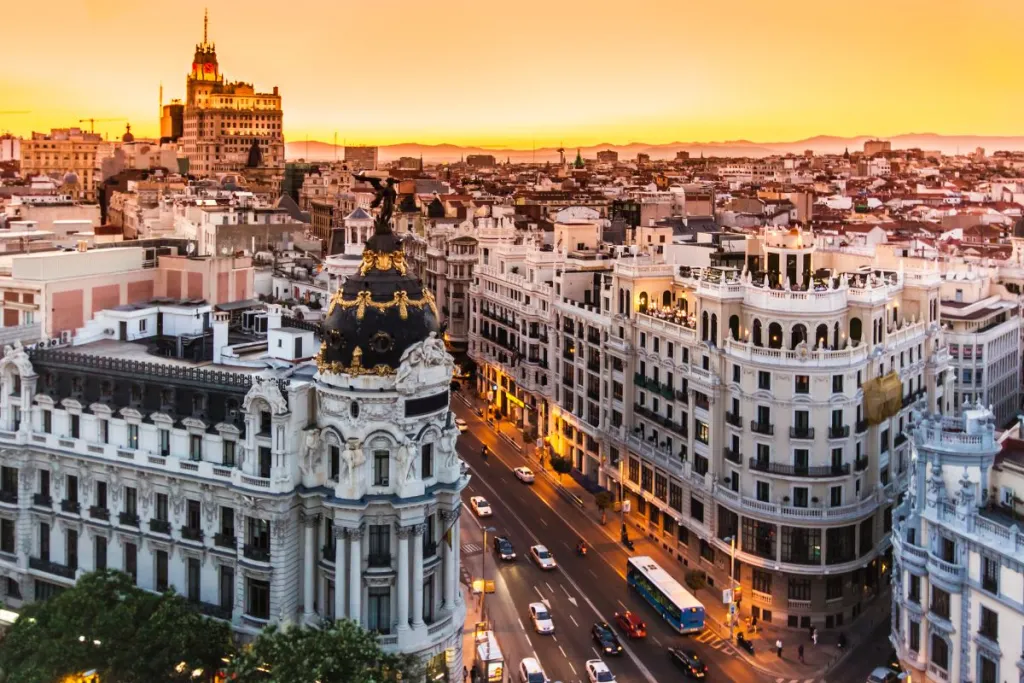
Spain, with its golden beaches, centuries-old palaces, and vibrant cities, is a dream destination for many. But for Muslim travellers, planning the perfect halal-friendly journey across Spain takes just a bit more care and research. From finding halal food to locating mosques, this guide has everything needed to prepare for a spiritually fulfilling and culturally rich trip through Andalusia and beyond.
Also read: Top 10 Cheapest Muslim-Friendly Country And Months to Fly in 2025
Before you go: Smart planning starts at home
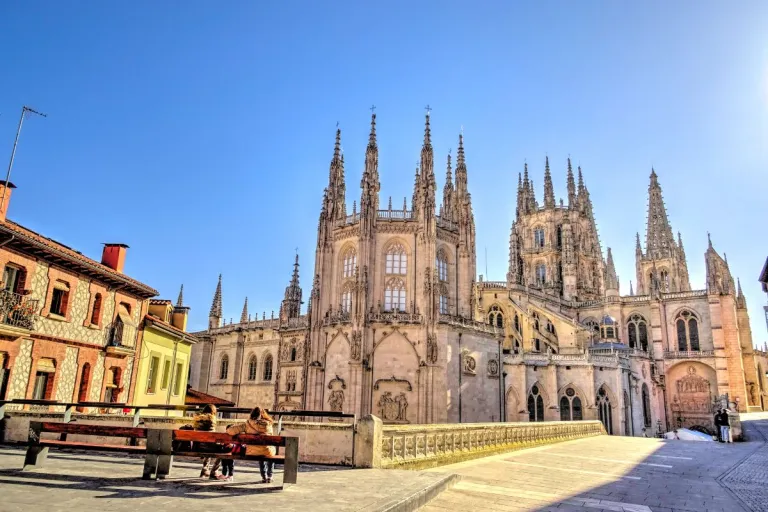 Image credit: mehdi33300 | Canva Pro
Image credit: mehdi33300 | Canva Pro
Every smooth trip starts with thoughtful preparation. For Muslim travellers heading to Spain, one of the first things to check is the visa requirement—many nationalities from Muslim-majority countries will need to apply for a Schengen visa, which allows entry to Spain and 25 other European countries within the Schengen Area. This process usually involves providing proof of accommodation, return flights, travel insurance, and financial means to support your stay. It's best to apply at least 15 days in advance, though starting earlier is wise, especially during busy travel seasons. While passport validity and travel insurance are also crucial, understanding the specific Schengen requirements is key to avoiding any hiccups at the border.
It's also a great idea to download helpful apps before the journey begins. "HalalTrip" and "HappyCow" make finding halal eateries a breeze. "Muslim Pro" or "IslamicFinder" come in handy for prayer times and locating nearby mosques. Apps like "Rome2Rio" and "Omio" simplify train and bus planning, while Google Translate is perfect for quick Spanish phrases like "¿Esto es halal?"
Packing essentials? Don't forget a travel prayer mat, a few packets of dates, and modest clothing for mosque visits. For those travelling during Ramadan, a hotel or Airbnb with a kitchenette can be a game-changer when preparing suhoor.
When to go: Timing is everything
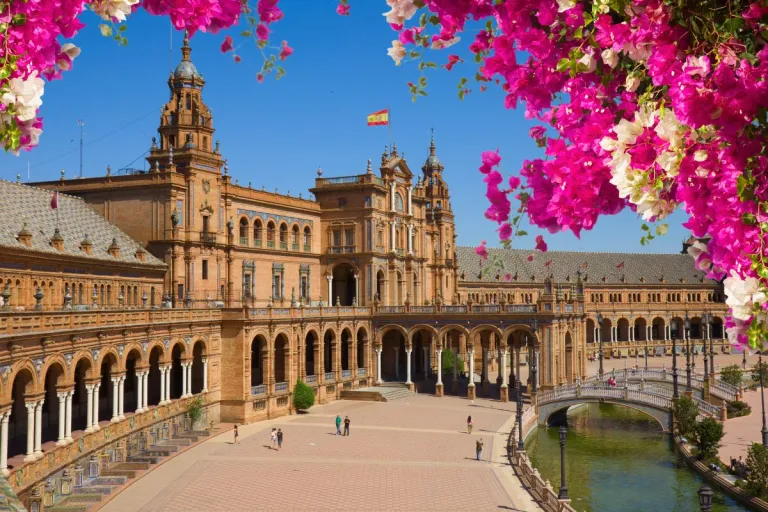 Image credit: Anastasia Collection | Canva Pro
Image credit: Anastasia Collection | Canva Pro
Spain gets hot in Summer, especially in southern cities like Seville, Córdoba and Granada. The best time to visit is during spring (Mar to Jun), or autumn (Sep to Nov). These months offer milder weather, blooming landscapes, and fewer crowds.
Travelling in Spain during the holy month of Ramadan can be a meaningful experience, especially in cities with larger Muslim communities, such as Madrid, Barcelona, and Granada, which have active communities and offer options for communal iftars and Taraweeh prayers.
Halal food: More accessible than you think
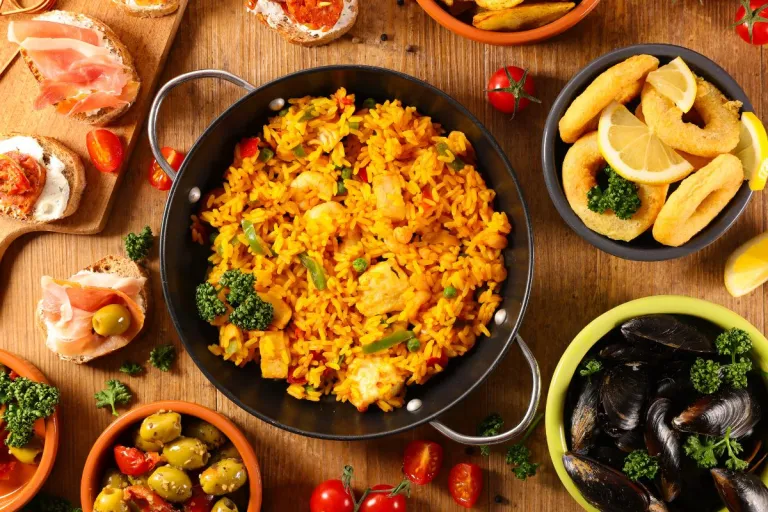 Image credit: margouillatphotos | Canva Pro
Image credit: margouillatphotos | Canva Pro
Finding halal food in Spain is easier than ever, thanks to Muslim-owned restaurants and growing awareness. Travellers should look out for signs that say "Halal Certified" or ask, "¿Tiene comida halal?" Spanish supermarkets like Carrefour and El Corte Inglés sometimes stock halal-certified meats. For those who enjoy local cuisine, many tapas dishes like patatas bravas (fried potatoes with spicy tomato sauce), tortilla española (Spanish omelette made with eggs and potatoes), pescaito frito (fried fish dish), gazpacho (cold tomato soup) and pimientos de padrón (small green peppers sautéed in olive oil and sprinkled with salt) are naturally halal.
Apps like Zabihah and HappyCow, plus local Facebook groups like "Halal Food in Spain," are great tools for discovering new spots. And, as a last resort, you can always visit one of the many Turkish, Moroccan, Pakistani and Indian restaurants that can be easily found in large cities.
Where to pray: Mosques and spaces for spiritual connection
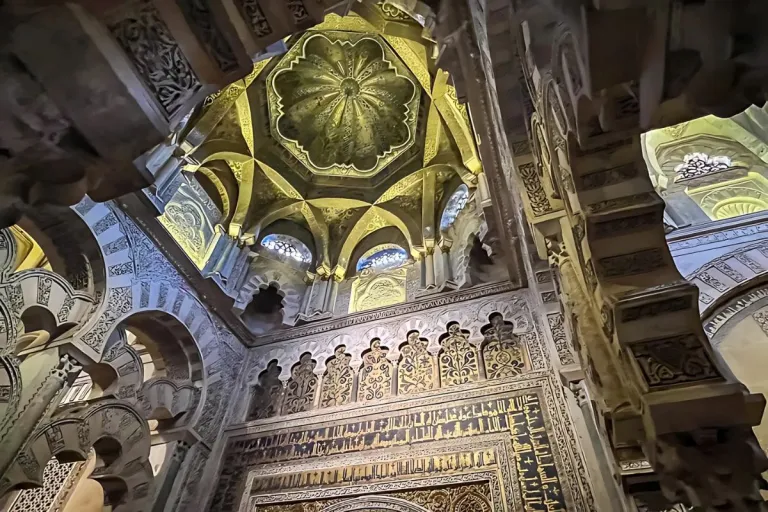 Image credit: Travel Past 50 | Official Website
Image credit: Travel Past 50 | Official Website
Spain has a growing network of mosques, especially in urban centres. There are more than 200 mosques in Madrid, the best known (and largest in Europe) being the Mezquita de la M-30 (Islamic Cultural Centre of Madrid).
Barcelona has Masjid Tariq Ibn Ziyad and 36 other mosques scattered across the city. Granada’s Mezquita Mayor is known for its scenic views and tranquil gardens, and in Marbella (Málaga), the King Abdul Aziz al Saud Mosque, modern in style, stands out for its elegance.
Smaller cities like Córdoba and Seville have local mosques, and friendly locals can often guide travellers to prayer spaces. At airports or train stations, prayer rooms may not be available, so carrying a small prayer mat is always a smart move.
Accommodation: Where to stay with comfort and convenience
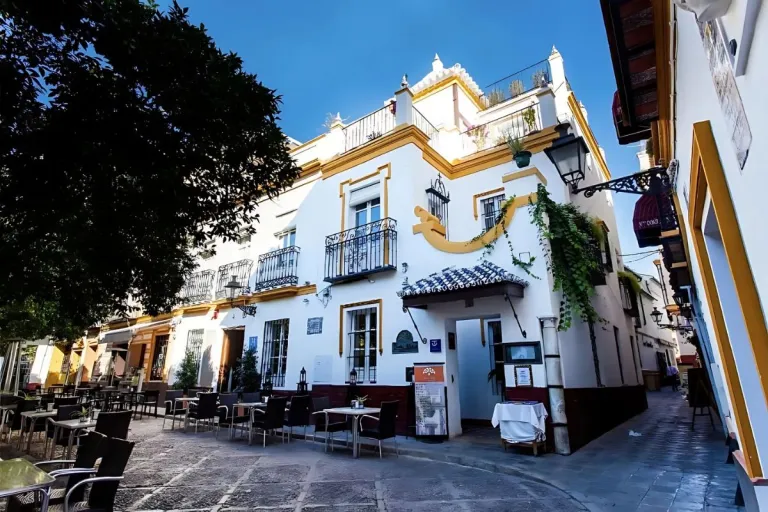 Image credit: Booking.com | Official Website
Image credit: Booking.com | Official Website
When booking accommodation, Muslim travellers may want to stay near mosques or halal eateries. Many hotels are happy to provide Qibla directions or prayer mats if requested.
Airbnb and aparthotels are ideal for stays, offering the freedom to enjoy ourselves without exposing our privacy. Websites like BookHalalHomes.com can also help locate Muslim-friendly stays.
Examples of great stays include Shine Albayzín Hotel in Granada (steps away from the Mezquita), La Ermita Suites or Eurostars Conquistador in Córdoba (right across from the Mezquita-Catedral), and Hotel Boutique Elvira Plaza in Seville (near Real Alcázar). To find the best deal available, you can check websites such as www.letsgohalal.com, which offer up-to-date information of great interest to Muslim travellers.
Getting around: Smooth travels across the country
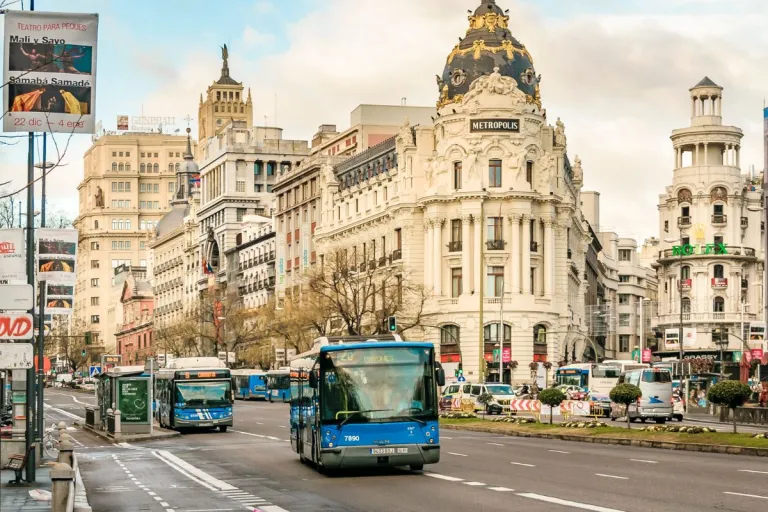 Image credit: DanFLCreativo | Canva Pro
Image credit: DanFLCreativo | Canva Pro
Spain’s transport system is excellent. Renfe’s high-speed AVE trains connect major cities quickly. Booking in advance saves money.
ALSA buses are a reliable and budget-friendly option. Within cities, metros and buses are efficient. Car rental is ideal for road trips, but driving in old city centres can be tricky due to narrow streets and limited parking.
Travel tips with a cultural touch
While Spain is warm and welcoming, modest attire is appreciated at religious sites. Learning a few key Spanish phrases goes a long way:
Halal meat: carne halal
No pork: sin cerdo
I don’t eat pork: no como cerdo
Is there a mosque nearby?: ¿Hay una mezquita cerca?
Where is the nearest mosque? ¿Donde esta la mezquita mas cercana?
Credit cards are widely accepted, but it’s wise to carry cash for smaller shops. Also, keep in mind that many businesses close in the afternoon for a siesta, especially in smaller towns.
Also read: Andalusia in 7 Days: Unmissable Islamic Attractions, Halal Foods and More!
Must-visit cities steeped in Islamic heritage
Spain’s Islamic past is woven into its architecture, culture, and cities, especially in the south.
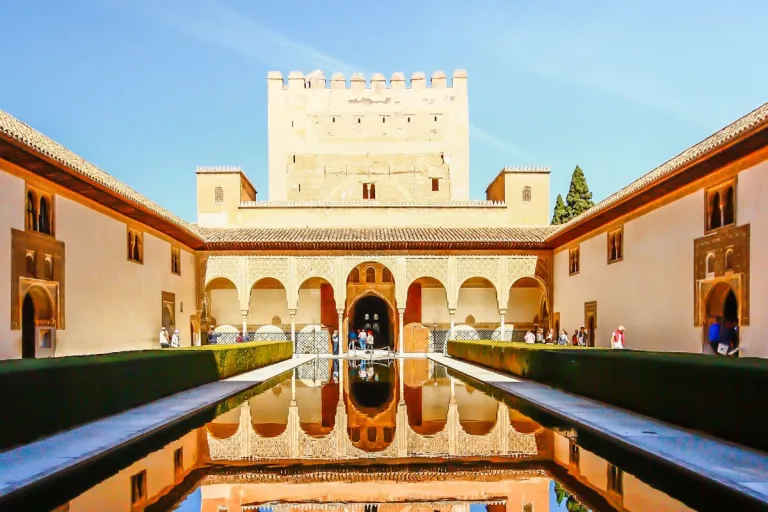 Image credit: Fabregas_Hareluya | Canva Pro
Image credit: Fabregas_Hareluya | Canva Pro
Andalusia, in particular, showcases Spain’s rich Islamic legacy through its architecture and urban layout, however, in other destinations such as Toledo, Zaragoza and Madrid, you can also find traces of islamic influence, monuments and iconic sites that not only provide visual beauty, but also offer spiritual and historical connections for Muslim travellers.
Granada is a must. The Alhambra, a UNESCO World Heritage Site, is a breathtaking fortress-palace that tells the story of Muslim rule in Al-Andalus. Visitors can wander the historic Albaicín quarter and enjoy the sunset at Mirador de San Nicolás.
For halal food, travellers are in for a treat—restaurants like Arrayanes serve up delicious Moroccan dishes such as lamb tagine, couscous with vegetables, and harira soup in a traditional Andalusian setting.
Meanwhile, Restaurante Sultan is another popular option, offering a wide range of Middle Eastern and Mediterranean halal dishes like grilled kebabs, falafel, chicken shawarma, and fresh hummus platters.
These spots not only ensure meals are halal but also offer comforting, flavourful food reminiscent of home. Mezquita Mayor de Granada provides a peaceful place to pray, surrounded by serene gardens and panoramic views of the Alhambra.
 Image credit: Zekai Zhu | Canva Pro
Image credit: Zekai Zhu | Canva Pro
In Córdoba, the Mezquita-Catedral is one of the most iconic structures in Europe. Tip: Go early to beat the crowds and catch free entry between 8:30am and 9:30am on weekdays. The nearby Zoco Municipal is a lovely spot for traditional shopping.
For halal food, El Patio Andaluz is not a dedicated halal restaurant but offers a range of vegetarian and seafood dishes that can be suitable for Muslim travellers with some caution. El Rincón de Beirut, on the other hand, is a popular Lebanese restaurant that clearly marks halal options on the menu, serving dishes like chicken shawarma, falafel, and lamb kebabs. Both places offer a pleasant dining experience with a taste of Andalusian and Middle Eastern flavours.
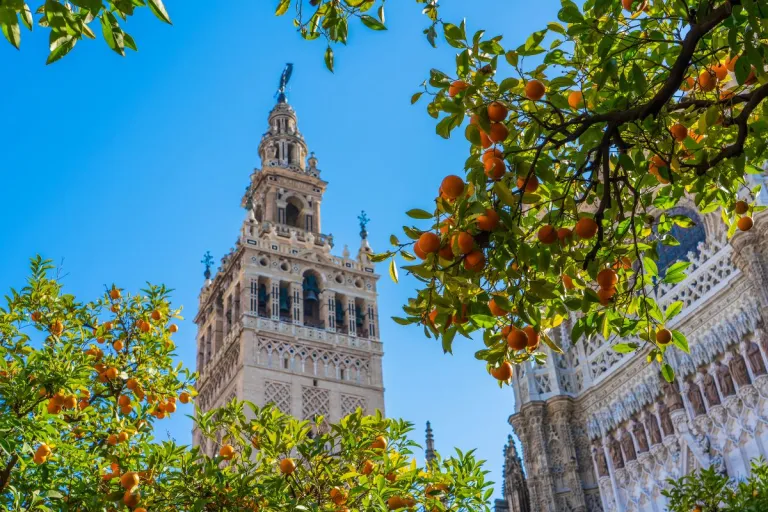 Image credit: Banjaku | Canva Pro
Image credit: Banjaku | Canva Pro
Seville blends Moorish and Spanish architecture, with the Giralda Tower and Real Alcázar, a royal palace originally developed by Muslim rulers — is a prime example of Mudéjar architecture, with intricate tilework, lush gardens, and elegant arches that echo the grandeur of Al-Andalus. Halal eateries such as Fez and Al Medina make meal planning easy. For prayer, Mezquita Ishbilia is the main masjid in town.
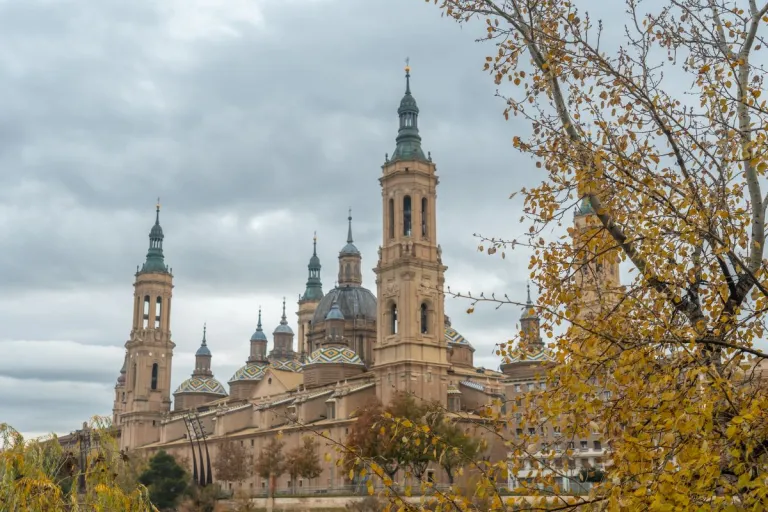 Image credit: Imagenes de unaihuizi | Canva Pro
Image credit: Imagenes de unaihuizi | Canva Pro
Just an hour and a quarter away by fast train from Madrid or Barcelona, Zaragoza is home to the stunning Aljafería Palace—a lesser-known but impressive Moorish fortress. La Seo cathedral, in Plaza del Pilar, is built on the structure of the great mosque of Zaragoza, and its walls still display an excellent example of Mudejar art (an artistic style that emerged in the Iberian Peninsula as a result of the coexistence of Christian, Muslim and Jewish cultures during the Middle Ages). To rest and recharge your batteries, we recommend dining at Kabul Restaurante or Restaurante Al Waha, both eateries add a halal touch to the trip.
To gain an insight into the importance of the Islamic legacy in Zaragoza’s province, be sure to visit the nearby towns of Zaragoza (Calatayud, Daroca, Maluenda, Borja and Tauste), which boast an impressive Mudejar heritage. You will find all the information you need for your trip on this website: Towns – Territorio Mudéjar
For those craving something off the beaten path, Albarracín is a medieval town with strong Moorish influences. It’s perfect for a peaceful day trip from Zaragoza. Halal food options are limited here, so packing a few snacks is a good call.
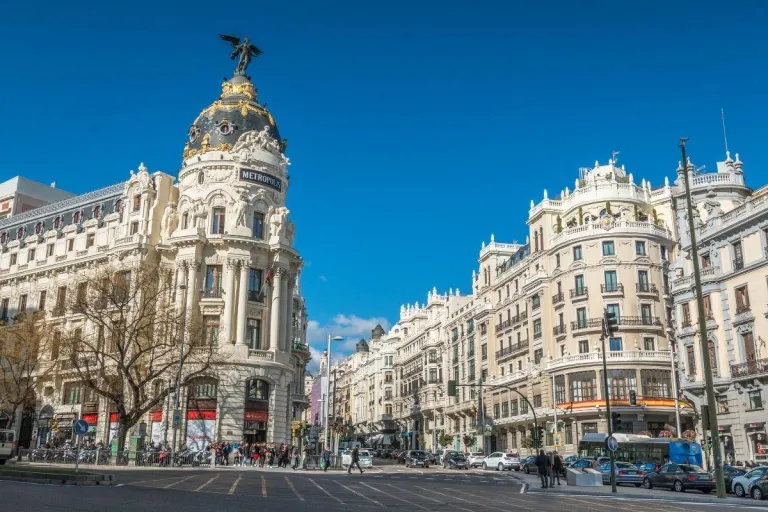 Image credit: PocholoCalapre | Canva Pro
Image credit: PocholoCalapre | Canva Pro
In Madrid, visitors can explore Islamic exhibitions at the Museo Arqueológico Nacional and enjoy halal meals at Baobab, Al-Mounia, or Tandoori Station. The Centro Cultural Islámico, the largest mosque in Spain, also houses a bookstore and restaurant.
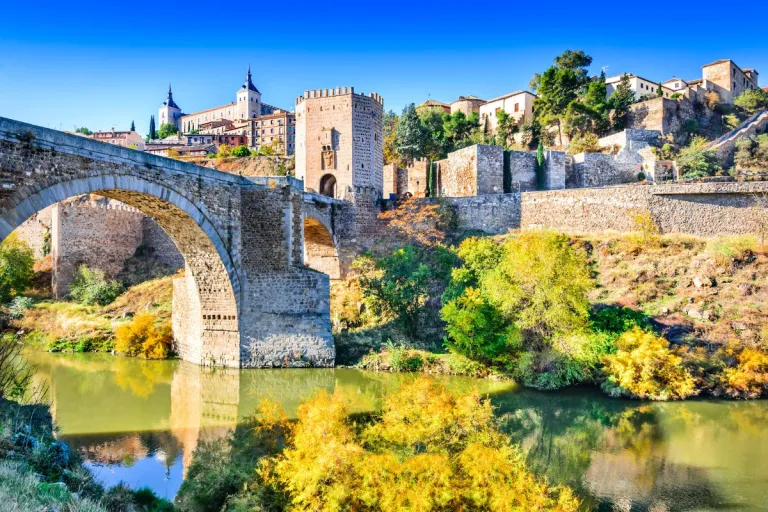 Image credit: emicristea | Canva Pro
Image credit: emicristea | Canva Pro
Toledo is another gem, a charming city where Islamic, Christian, and Jewish histories intertwine. Known as the "City of Three Cultures," Toledo offers Muslim travellers a glimpse into Spain’s Islamic past with its winding medieval streets and historic mosques like Mezquita del Cristo de la Luz. While halal options are more limited compared to bigger cities, restaurants such as Restaurante Alqahira Rincón de Oriente offer delicious halal-friendly Middle Eastern cuisine. Travellers should plan ahead, but the city's rich history more than rewards a visit.
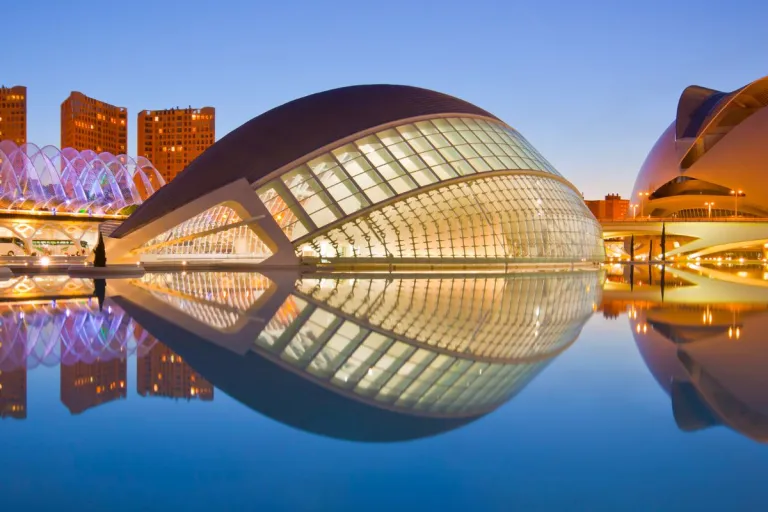 Image credit: kasto | Canva Pro
Image credit: kasto | Canva Pro
Valencia offers sunny beaches and the futuristic City of Arts and Sciences. Dining at Balansiya Restaurante Árabe Halal or Shahi Restaurant fits well into a halal itinerary. Mosques can be found in neighbourhoods like Benicalap and Ruzafa.
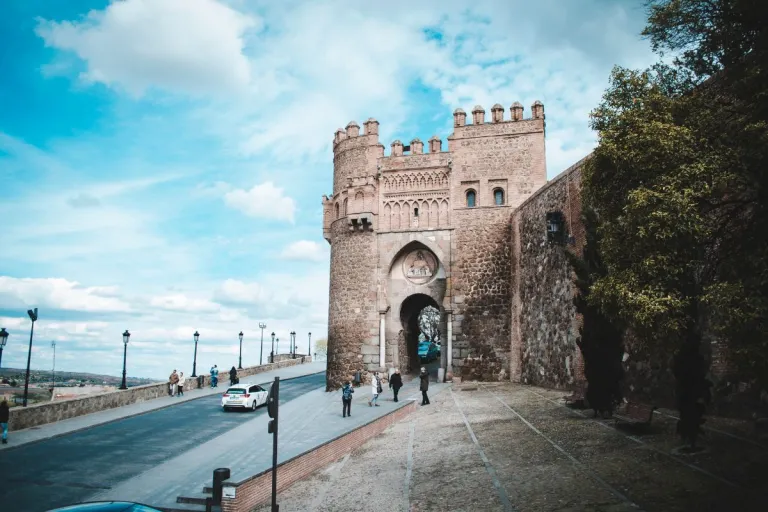 Image credit: Nicolas Postiglioni | Canva Pro
Image credit: Nicolas Postiglioni | Canva Pro
Finally, Toledo is a fascinating destination for Muslim travellers due to its rich Islamic heritage and historical significance in Al-Andalus. Once a thriving centre of Islamic culture, the city still preserves remarkable examples of Moorish architecture, such as the Puerta del Sol and the Mosque of Cristo de la Luz, one of the oldest surviving mosques in Spain. Toledo’s unique blend of Muslim, Jewish, and Christian influences offers a compelling glimpse into the coexistence of cultures during the medieval period. Visitors can explore the city’s winding streets, discover Islamic art and history, and enjoy a deep cultural experience that connects them with Spain’s Islamic past. In Toledo, you can enjoy delicious certified halal food at La Casa de Damasco (Middle Eastern cuisine), Beykebap (Turkish) and Marrakech (Moroccan).
With this guide in hand, Muslim travellers can set off on a Spanish adventure that’s as seamless as it is unforgettable—rich in history, filled with faith, and full of flavour. By planning wisely, anyone can embark on a Muslim-friendly Spanish adventure that blends leisure with purpose!
_____________________________________________________________________________________________
Brought to you by Spain Tourism Board
Published at
About Author
Aimi Zulkiflee
Subscribe our Newsletter
Get our weekly tips and travel news!
Recommended Articles
10 Best Halal-Friendly Destinations in The Philippines for Muslim Travellers 10 Best Places for Muslim Travellers to See Tulip Festivals in 2025 Fun Fact: Tulips didn’t actually come from the Netherlands but Türkiye!
10 Halal Anime Food Guide for Muslim Travellers in Japan Muslim-friendly versions of popular anime dishes across Japan!
Top 10 Popular Muslim-Friendly Destinations to Visit in 2025 Our schedules are packed, buddies!
10 Halal Restaurants in Bangkok to Satisfy Your Thai Cravings From Korean-style BBQ and Punjabi curries to award-winning shrimp Pad Thai, take your pick from these amazing Halal restaurants in Bangkok.
Latest Articles
Best Places to Stay in Kyoto 2026 : 10 Best Ryokan Hotels with Traditional Japanese Style the ultimate way to feel Kyoto’s old-world charm
Taiwan Cherry Blossom Guide 2026: Top 10 Spots, Forecast, & Hot Springs cherry blossom season is back!
The Ultimate Guide to Nakameguro Cherry Blossom Season: Tokyo’s Iconic Pink Wonderland must-visit when you're in Tokyo during sakura season!
The Ultimate Guide to the Kawazu Cherry Blossom Festival You don’t have to wait that long to see Japan turn into a pink wonderland!
10 Most Instagrammable and Soul-Soothing Resorts in Yogyakarta for Your 2026 Retreat Experience luxury and serenity.

